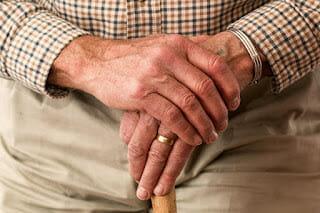As people age, they may experience a decline in physical and mental health, making it more challenging to perform daily activities. This decline often results in a need for specialized care to support the elderly in maintaining their independence and quality of life. Rehabilitation plays a crucial role in senior care and recovery by providing older adults with the necessary tools to overcome physical and cognitive impairments.
How Can Rehabilitation Help
Rehabilitation involves a series of interventions that aim to restore function, improve mobility, and enhance the quality of life of seniors. This process typically starts with an assessment of the individual’s physical and mental capabilities and identifying areas of concern. Based on the results of this assessment, a rehabilitation plan is designed to address the specific needs of the patient.
The primary goal of rehabilitation in senior care is to help seniors regain their independence and improve their quality of life. For seniors recovering from an injury, surgery, or illness, rehabilitation helps them recover more quickly and reduces the risk of complications. Rehabilitation can also help seniors manage chronic conditions such as arthritis, diabetes, and heart disease, which can be debilitating and limit their ability to perform daily activities.
The Different Types Of Therapy
Physical Therapy
Physical therapy is a key component of rehabilitation for seniors. Physical therapists work with seniors to help them regain their strength, improve their balance and coordination, and manage pain. This therapy may include exercises, stretches, and manual therapy techniques to promote healing, reduce stiffness and improve mobility. With so many therapy options available, physical therapists are able to tailor a program that meets the individual needs of each patient. This can include activities like walking, swimming, or lightweight training.
Occupational Therapy
Occupational therapy is another critical aspect of rehabilitation for seniors. This therapy focuses on improving the senior’s ability to perform daily activities, such as bathing, dressing, and grooming. Occupational therapists work with seniors to develop strategies for completing tasks independently, using adaptive equipment, and modifying the home environment to make it safer and more accessible.
Speech Therapy
Speech therapy is also a vital part of rehabilitation for seniors who have experienced cognitive or communication impairments. Speech therapists work with seniors to improve their ability to communicate, swallow, and chew food safely, and manage speech and language disorders. When necessary, speech therapists also help seniors learn how to use assistive devices such as hearing aids and communication boards.
Psychological Interventions
Rehabilitation for seniors is not limited to physical therapy, occupational therapy, and speech therapy. It can also include psychological and social interventions. Psychologists and social workers can provide emotional support to seniors who may be struggling with the challenges of aging, including loneliness, anxiety, and depression.
In conclusion, rehabilitation plays a critical role in senior care and recovery. It provides seniors with the tools and resources they need to regain their independence, improve their quality of life, and manage chronic conditions. Seniors who receive rehabilitation services can experience improved physical function, increased mobility, and a better overall outlook on life. If you or a loved one is in need of senior care and recovery services, it’s essential to work with a healthcare provider who can provide comprehensive rehabilitation services to support your needs.
